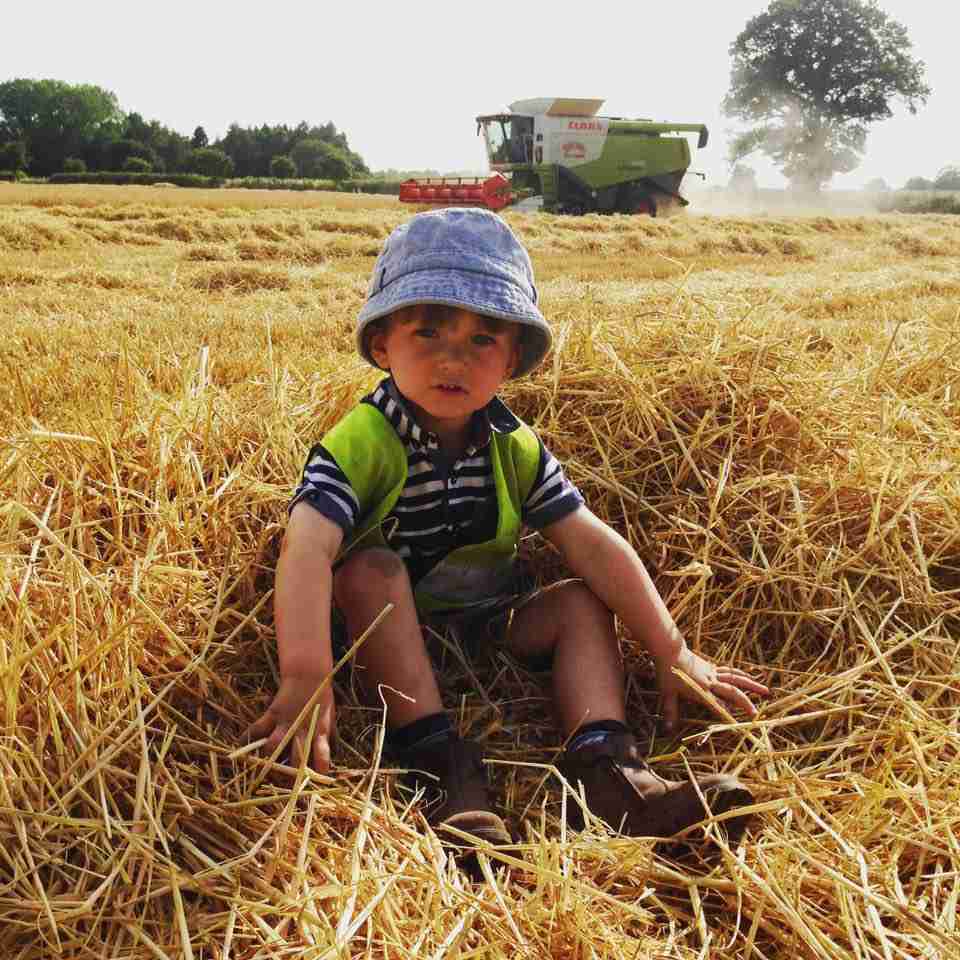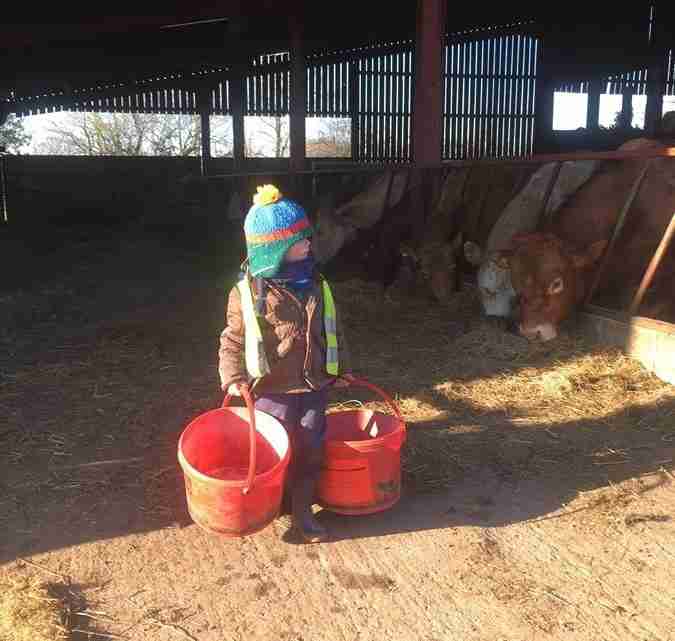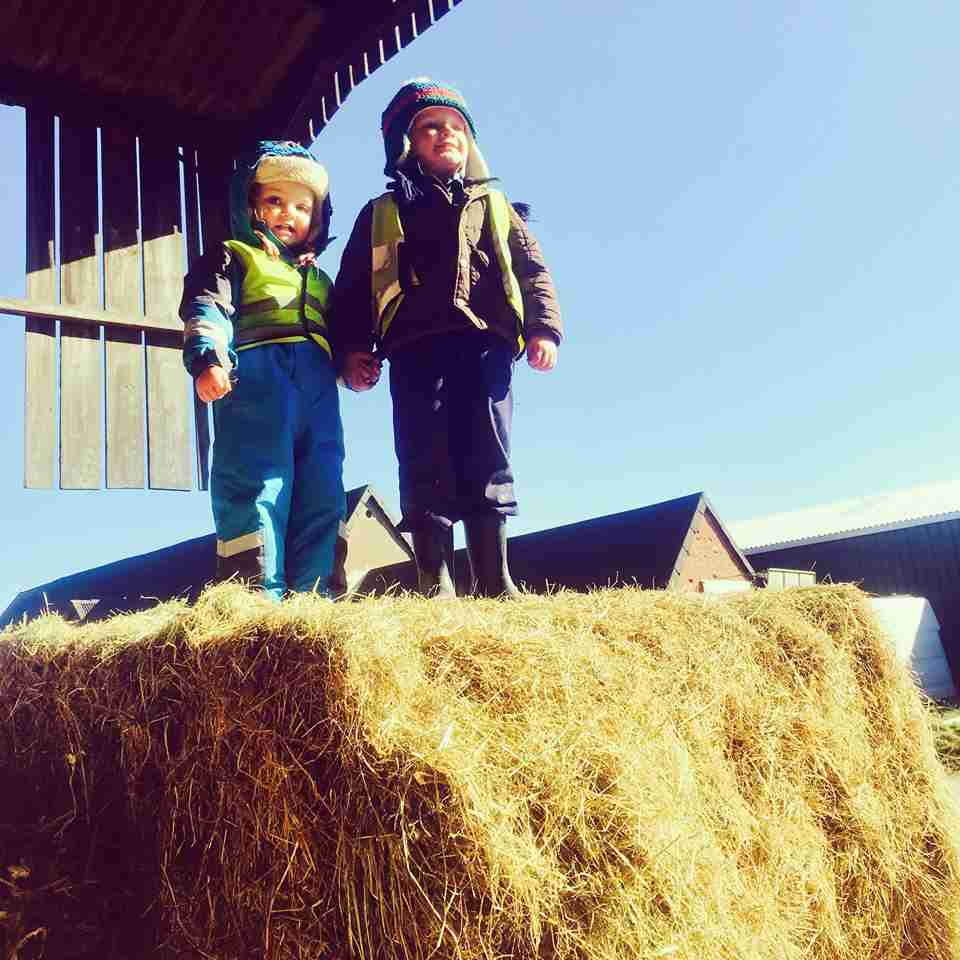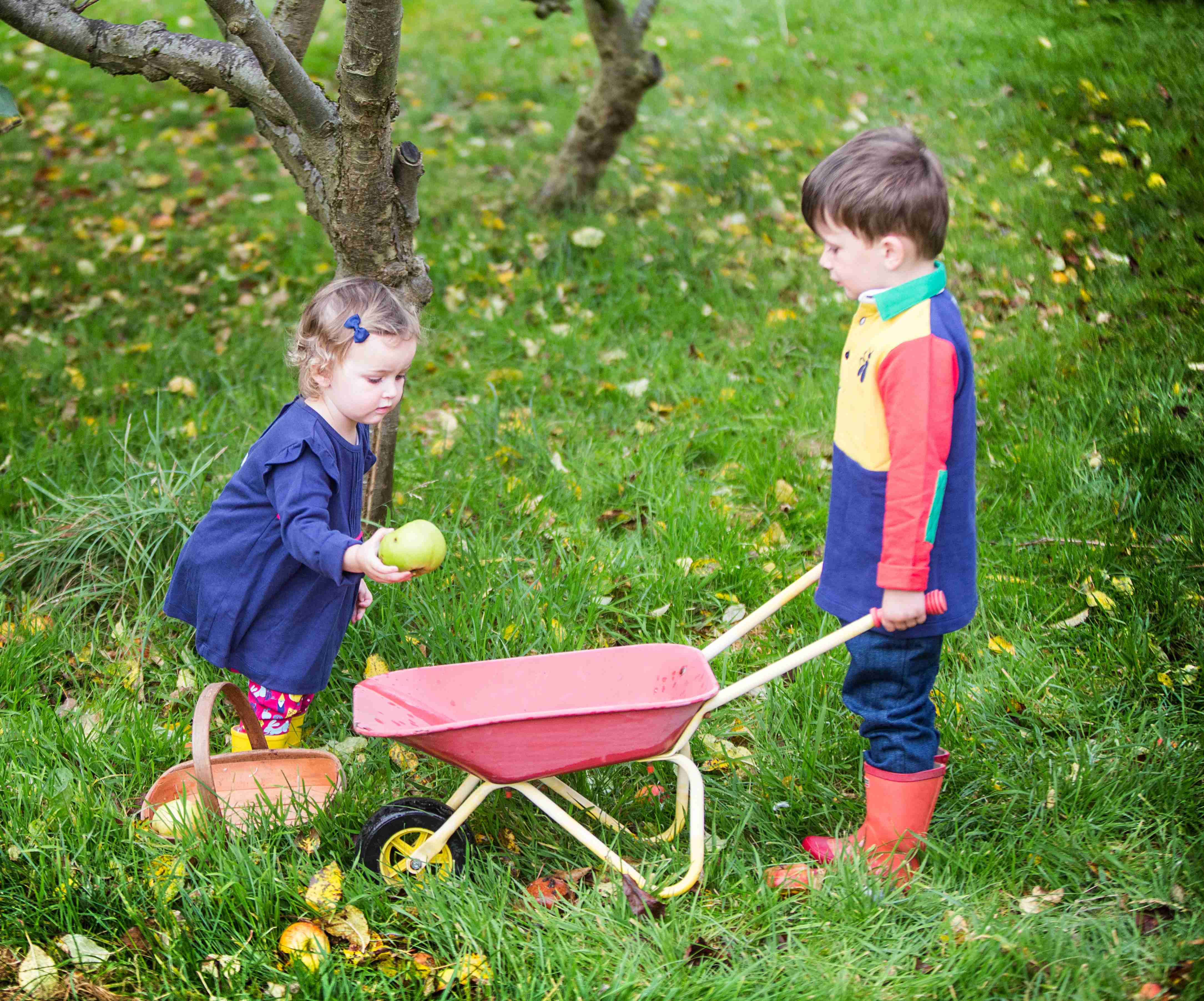As a farmer’s wife and mummy of two young children, I have my gripes about living and working on a farm. However, these are far outweighed by extreme benefits this way of life and up-bringing can offer my family and our friends.
Today it is becoming increasingly evident that the general public as consumers are seemingly getting further away from the basic knowledge of where our food comes from and how it is made.
My children will never be the cleanest ones at a party, they’ll usually be late (there’s always an issue on the farm), but they will appreciate where the produce comes from and the work and welfare that goes in to feeding people every day. With this outlook and understanding I will feel as parents we have succeeded.
“Oh, so that’s where corn comes from,” said my three-year-old’s friend in the summer. He was swiftly corrected by my son; “that’s wheat and Daddy is combining it to make bread”.
I couldn’t have been more proud of my little man (who idolises his farmer daddy) and at the same time felt as if all children should have access to this information.
I’m pretty sure most children believe that almost all of the food we eat originates from the supermarket, but I’m determined to teach my children (at least) otherwise.
The connection children have with the food they eat should be as important as any other lesson taught. That’s why I take my brood to shop at farmer’s markets, take any opportunity to go outside on to the farm and show them produce first-hand and enjoy the produce by cooking together.
By doing this, my children are learning when they don’t realise they are and it’s amazing what they pick up and absorb. When I refer to food production, it’s not just the animals and arable crops – the process of fruit and vegetable-picking is up there too! We’re huge fans of apple-picking in September and blackberry-foraging in the summer.
Showing children what work goes into growing food will hopefully help them learn to waste less and make them appreciate what they’re
eating just a little bit more.
Spending time with the cows and sheep on our farm is always a firm favourite with my children and their friends. Watching how the children interact with the animals in a hands-on way gives them an certain understanding of how animals should be treated, by watching Daddy they learn what’s required for their well-being, and how they contribute to farm life.
Being outside in nature is good for your children’ health and stress levels. Not only this, we have a responsibility to expose the future farmers of our country to agriculture and pass on our knowledge, otherwise we’ll see ourselves slipping behind.
“You, as a food consumer, have the privilege of actively participating in shaping the world you children will inherit” – Joel Salatin

